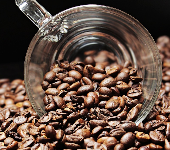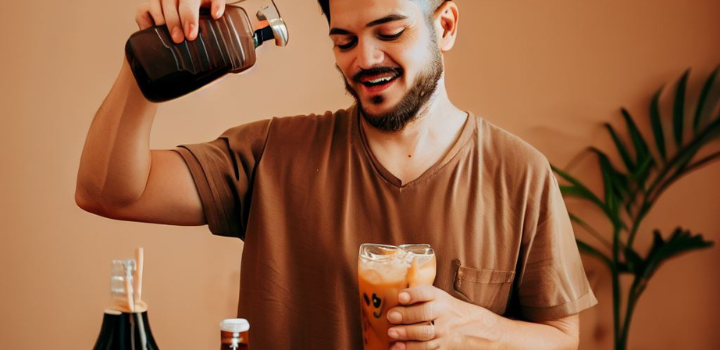When it comes to starting our day or enjoying a cozy afternoon, a cup of coffee is often our go-to companion. However, as coffee enthusiasts, we’ve all encountered the unpleasant taste of bitter coffee at some point. If you’re wondering what causes bitter coffee and why your delicious beans have turned bitter, and how to fix it, this article will explore the various factors that contribute to this undesirable flavor and provide some helpful tips to improve your coffee-brewing experience.
Coffee Beans Quality:
It all begins with the coffee beans themselves. The quality and freshness of the beans play a significant role in determining the taste of your brew. Inferior quality beans or those that have been improperly stored can result in a bitter cup of coffee. When purchasing coffee beans, opt for high-quality, freshly roasted ones to ensure a delightful flavor profile.
Brewing Temperature:
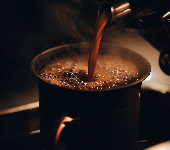
The temperature at which you brew your coffee can have a substantial impact on its taste. If the water is too hot, it can easily extract undesirable compounds from the coffee grounds, leading to bitterness. Conversely, using water that is too cold may result in an under-extracted brew, lacking flavor complexity. Aim for a water temperature between 195°F (90°C) and 205°F (96°C) to strike the perfect balance and avoid bitterness.
Brewing Time:
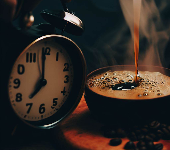
Time is of the essence when it comes to brewing coffee. Both under-extraction and over-extraction can contribute to the bitterness in your cup. Under-extraction occurs when you don’t allow the water enough time to extract all the flavorful compounds, leaving behind bitter notes. On the other hand, over-extraction happens when the grounds are in contact with the water for too long, extracting excessive bitterness. Finding the ideal brewing time based on your brewing method and personal preference can greatly enhance the taste of your coffee.
Grind Size:
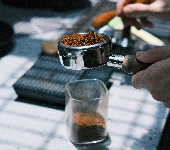
The coffee grind size has a profound impact on the extraction process and, subsequently, the taste of your coffee. If your coffee tastes excessively bitter, it could be due to a too-fine grind. Fine coffee grounds tend to lead to over-extraction and bitterness since they have a larger surface area that comes into contact with water. Conversely, using too coarse a grind may result in under-extraction and a weak brew. Experimenting with different grind sizes based on your preferred brewing method can help you strike a balance and achieve a well-balanced cup of coffee.
Water Quality:
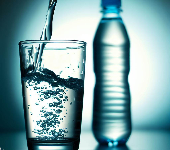
Here’s something you might not have considered before – the quality of the water you use can influence the taste of your coffee. Water with high mineral content, such as hard water, can introduce unwanted flavors and contribute to bitterness. Additionally, water that is too alkaline or acidic can affect the extraction process, altering the taste of your brew. Using filtered or bottled water can often improve the overall quality of the coffee and reduce bitterness.
Coffee-to-Water Ratio:
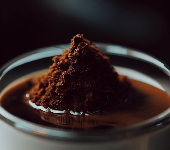
The ratio of coffee grounds to water is critical in determining the strength and flavor equilibrium of your brew. Using too few coffee grounds compared to the amount of water results in under-extraction, leading to a weak and potentially bitter cup of coffee. Conversely, using an excessive amount of coffee grounds can result in over-extraction and intense bitterness. Experiment with different ratios to find the perfect balance that suits your taste preferences.
Roast Level:
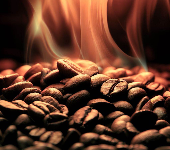
The roast level of your coffee beans also contributes to the overall flavor, including the potential for bitterness. Darker roast levels tend to have a more pronounced bitterness due to the extended exposure to heat during the roasting process. If you prefer a smoother and less bitter coffee, opt for lighter roasts, which usually showcase more delicate flavors.
Conclusion:
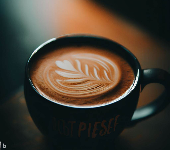
Understanding the factors that cause bitter coffee, including “what causes bitter coffee,” is crucial for improving your brewing skills and enjoying a more satisfying cup. By considering the quality of your beans, controlling brewing temperature and time, adjusting grind size, monitoring water quality, and optimizing the coffee-to-water ratio, you can brew a delicious cup of coffee without the unwanted bitterness. Moreover, selecting the right roast level for your taste preferences can also make a remarkable difference. So, next time you savor your freshly brewed coffee, savor it without the bitter undertones!
Can using old coffee beans cause bitterness?
Yes, using old coffee beans can lead to bitterness in your coffee. Over time, coffee beans can become stale, losing their essential oils and aroma. Stale beans tend to produce a more bitter and less flavorful cup of coffee. To enjoy the best taste, it’s recommended to use freshly roasted coffee beans and grind them just before brewing.
How does water temperature affect coffee taste?
Water temperature plays a crucial role in coffee extraction. If the water is too hot, it can over-extract the coffee, resulting in a bitter taste. On the other hand, water that’s too cold may under-extract the coffee, leading to a weak and sour flavor. The ideal water temperature for brewing coffee is typically between 195°F to 205°F (90°C to 96°C).
What is the ideal brewing time for different brewing methods?
Brewing time varies depending on the method. For example, a French press may require around 4 minutes, while an espresso shot should take about 25-30 seconds. Drip coffee machines typically take 5-6 minutes. The ideal brewing time ensures that the coffee grounds are in contact with the water long enough to extract the desired flavors without over-extracting and becoming bitter.
Which roast level is best for those who prefer less bitterness in coffee?
For those who prefer a milder and less bitter coffee, a lighter roast is generally recommended. Lighter roasts tend to retain more of the bean’s natural flavors and have a brighter, more acidic profile. Darker roasts can develop more bitterness and smokiness during the roasting process. However, personal taste varies, so experimenting with different roast levels is always a good idea to find what suits your palate best.


